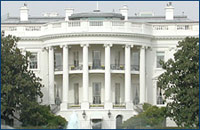Capitalism on Sale?
 I am very excited to undertake my duties as Faculty Blogger for the month of May. My colleagues have done an outstanding job in making the Marquette University Law School Blog a “go to” destination for ideas and information about law, politics and society. They have demonstrated an inspired vision of how technology can bring the Marquette community together, and the inaugural year of the blog has been an unqualified success. This makes their apparent lapse in judgment in inviting me to serve as Faculty Blogger for this month all the more surprising. I will try my best not to embarrass anyone.
I am very excited to undertake my duties as Faculty Blogger for the month of May. My colleagues have done an outstanding job in making the Marquette University Law School Blog a “go to” destination for ideas and information about law, politics and society. They have demonstrated an inspired vision of how technology can bring the Marquette community together, and the inaugural year of the blog has been an unqualified success. This makes their apparent lapse in judgment in inviting me to serve as Faculty Blogger for this month all the more surprising. I will try my best not to embarrass anyone.
Arthur Brooks of the American Enterprise Institute had an interesting op ed in the Wall Street Journal on April 30 entitled “The Real Culture War is Over Capitalism.” You can find it on the Journal’s website. His key quote: “Advocates of free enterprise must learn from the growing grass-roots protests [like the “tea parties”], and make the moral case for freedom and entrepreneurship.” I agree with his central point, which is that free market conservatives have made the mistake of assuming that capitalism is a good in and of itself, and have failed to make the case that free markets have moral ends. Is it in fact demonstrable that free market capitalism leads to the greatest economic benefit to the greatest number of Americans, a utilitarian standard with its roots in the classical Greek conception of government? Alternatively, can free market advocates demonstrate that the best way to preserve and promote the dignity of human beings is through a marketplace unfettered by regulation or government oversight, a standard that comes from Catholic social teaching? Shouting “Socialism!” at every government intervention in the market is not enough.

